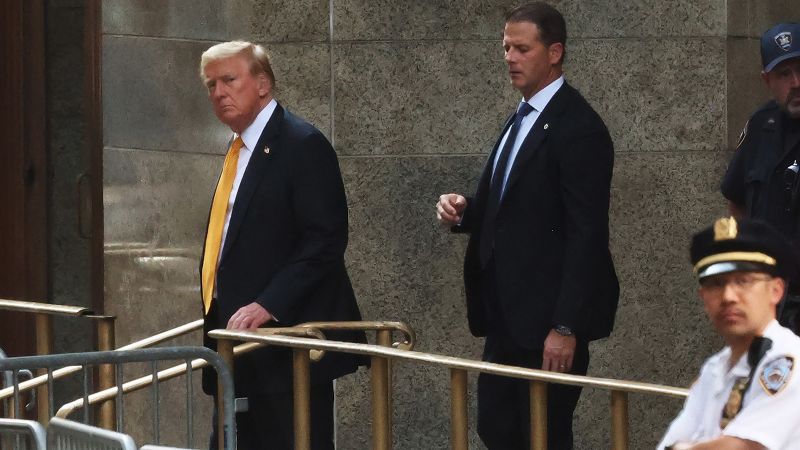The mood on the high-security 15th floor of a Manhattan courthouse where Donald Trump is on trial shifts quickly between torpor and high tension. The jury, made up of seven men and five women, interrupted their deliberations with a request for a read-back of testimony from David Pecker and Michael Cohen. This testimony is crucial for determining Trump’s intent regarding hush money payments, particularly the one to Stormy Daniels. The judge and lawyers scrambled to fulfill the jury’s requests for clarification, indicating that a verdict was not imminent.
The legal complexities of the case, including the charges of falsifying business records, were clarified by the presiding judge, Juan Merchan. While the charges against Trump are only misdemeanors, prosecutors are seeking a felony conviction based on the belief that he falsified the records to cover up other potential crimes. This unique legal interpretation raises questions about Trump’s intentions and could have significant implications for his reputation and future. The jury’s thorough examination of the evidence underscores the weight of their duty and the significance of the case.
As the jury navigates the dense testimony and legal instructions, Trump watches from the defense table, occasionally expressing frustration or disdain. His confinement in the courtroom highlights the power imbalance revealed by the trial and his precarious legal situation. Despite his former status as a high-profile figure, Trump now waits anxiously for the jury’s decision, aware that his fate hinges on their verdict. His allies are cautiously optimistic that a lengthy deliberation process could work in his favor, potentially leading to a hung jury or a favorable outcome.
Trump’s public outbursts and attempts to delegitimize the legal process suggest a desperate political strategy to sway public opinion. While he criticizes the jury instructions and accuses President Biden of orchestrating a conspiracy against him, the actual jurors remain focused on their task. The diverse composition of the jury, including attorneys and professionals from various backgrounds, provides a range of perspectives that will ultimately shape the verdict. Trump’s fate, despite his wealth and notoriety, now rests in the hands of these ordinary citizens tasked with making a consequential decision.
As the trial unfolds, the tension rises, and Trump’s future hangs in the balance. The courtroom drama underscores the gravity of the charges against him and the potential repercussions for his political ambitions. The jury’s meticulous scrutiny of the evidence and legal instructions reflects the complexity of the case and the importance of their deliberations. Trump’s attempts to influence public opinion and the trial’s outcome are met with skepticism, as the jury remains isolated from external pressures and focuses on the facts of the case. Ultimately, Trump’s fate will be decided by 12 New Yorkers deliberating on the evidence before them, a stark reminder that the law applies to everyone, regardless of their status or influence.


